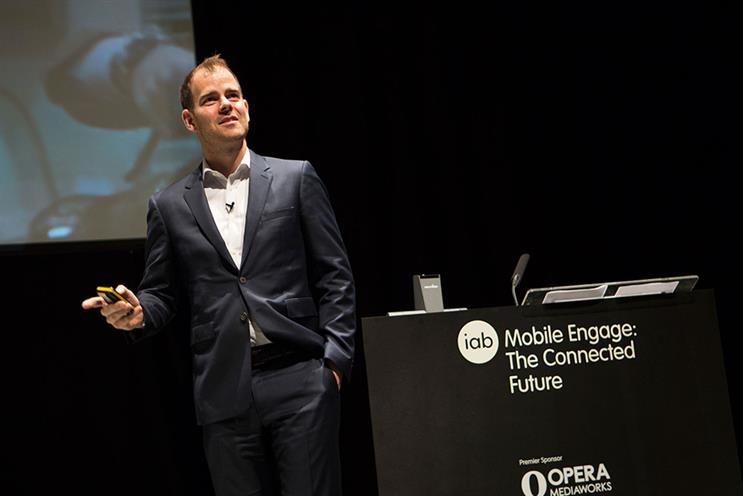
This year’s Mobile Engage conference began with a surprise announcement: it would be the last one.
The annual event, hosted by the Internet Advertising Bureau in London last week, is to be folded into the main Engage conference, which will extend to two days. The move reflects how mobile has become intrinsic to the wider media industry.
During the six years of Mobile Engage, rapid advances in technology have heralded the launch of the iPad, the "phablet" and, most recently, the smartwatch.
And so the usual tone of optimism towards the future was this year punctuated by a touch of nostalgia as many speakers reflected on how mobile has changed the world in recent years
"The word ‘selfie’ didn’t exist six years ago, did it?" the IAB’s chief operating officer, Jon Mew, mused. He reminded the audience of mobile’s prominent role in global events, such as the reporting of the Arab Spring and the viral ALS Ice Bucket Challenge.
The day started with a more introspective session on the psychology of mobile, with Dr Simon Hampton warning that consumers will turn away from technology that damages their self-esteem.
"When the fridge starts telling us what to eat, we’re not going to like it," he explained. "Self-esteem seems to be a one-way ticket – anything that agitates against it tends to be loathed, so we turn it off."
The behavioural changes that mobile has brought to our lives were underscored by Twitter UK’s sales director, Dara Nasr, who quoted a YouGov survey that found 78 per cent of people enter a state of heightened anxiety when they lose their phone or are out of signal.
And what may seem a "first-world problem" is set to take over the world. As Google UK’s Martijn Bertisen explained, mobile growth is strongest in emerging economies such as India, where five million people are coming online via mobile devices. He noted: "Every single day, 3.4 million people get a new smartphone. There is no slowing down on the adoption of devices."
In light of this growth, how can advertisers get better at creating content and planning campaigns for mobile?
Deann Harvey, the EMEA vice-president at the technology provider Sizmek, pointed out that not enough brands are adapting well to the range of screen sizes and functionality offered with different devices on the market.
But the most pressing issue is that mobile advertising is being held back due to a disconnect between creative agencies, media shops and clients, according to TMW Unlimited’s chief creative
officer, Gareth James.
James said: "I don’t think this industry is very good at learning from previous mistakes. We have to realise that interrupting their [mobile users’] personal space is a very bad thing; we have to learn from avoiding things such as pop-ups; and we have to find ways of making brands fit in – not get in the way."
With much to chew over, the day ended with an amusing fireside chat with Richard Ayoade, the IT Crowd actor and host of Gadget Man.
Ayoade shared the sentiment of many when he admitted that he would descend into panic-stricken jelly if he were to lose his phone. But he added: "I mean, I’m operating a high level of anxiety, anyway. I’m a coiled cobra."

